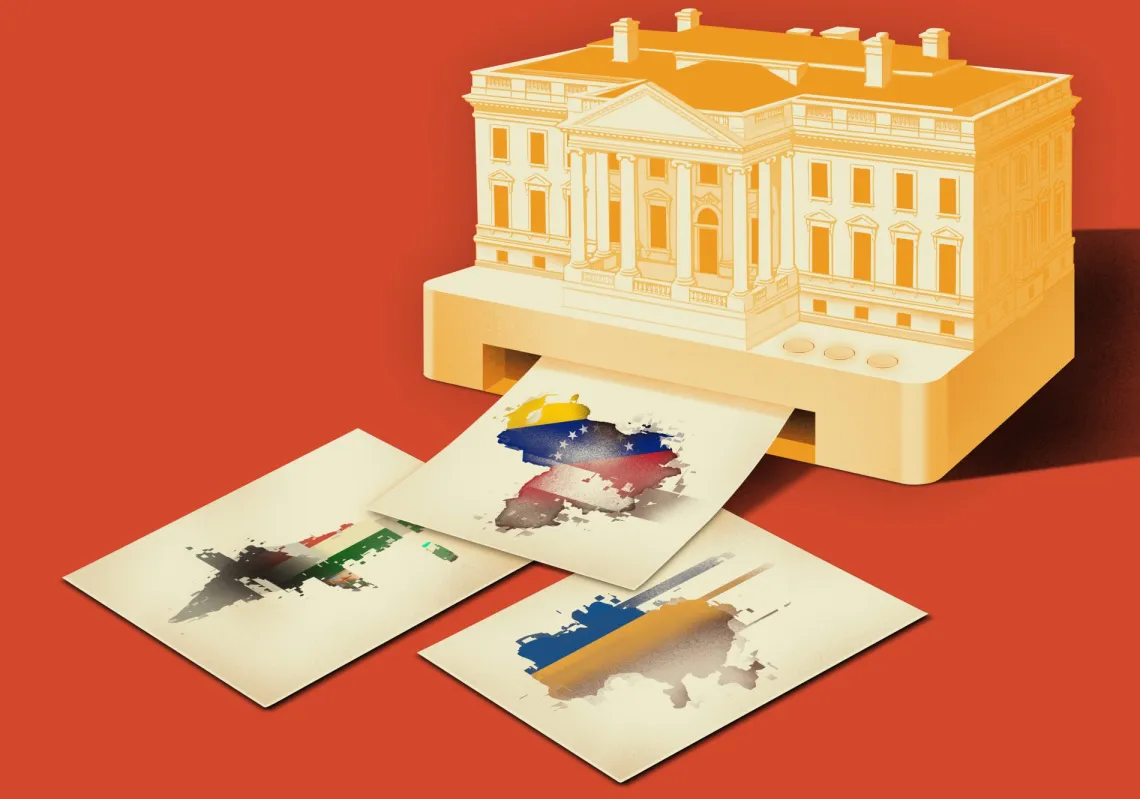The different political positions held by three of the Middle East’s main powers were on display at a summit for developing nations held in Cairo earlier this month amid the latest regional friction over Syria. Egypt, Iran and Türkiye were present in Cairo at the meeting of the group of developing nations known as the D-8, alongside five other Islamic nations.
Ahead of the 20 December meeting in Cairo, international and regional attention was firmly focused on the shocking 11-day downfall of Bashar al-Assad's regime. He had fled Damascus just days before the group convened.
Events in Syria have already exposed fissures between Egypt, Iran and Türkiye, highlighting their points of contention. When the three D-8 heavyweights huddled together, top-level pleasantries were exchanged. But the flowery words did little to mask the emerging faultlines and concerns over the dramatic regime change in Damascus.
Winners and losers
Iran is seen as the biggest loser after al-Assad’s overthrow, which has seen its influence in the region significantly curtailed. It compounds a series of losses over just a few months for Tehran’s proxies, from the defeat of Hezbollah in Lebanon to the weakening of the Houthi militia in Yemen. The slew of defeats has left Iran much more limited in its scope and pushed back within its own borders.
Read more: Syria and the future of Iran
For its part, Türkiye has emerged as the big winner in a post-Assad region. The links it built with the coalition of Islamist groups that deposed the Syrian leader—especially Hayat Tahrir al-Sham (HTS)—will pave the way for many gains to come, including the possible total eradication of the threat posed to it by Syrian Kurds.
By helping drive Hezbollah and Iran out of Syria, Türkiye is becoming the regional player with the closest relations with the US and Israel. And if Ankara gets Syria's new rulers to push Russia out, it will win even more favour.

Türkiye is is also well-positioned to have a dominant share in the reconstruction of Syria. As well as being among its closest neighbours, it is also one of the most prepared for the projects which will be required.
Shifting calculations
As new political realities unfold across the region and diplomatic calculations shift, there is speculation that both Türkiye and Iran will be turning to Egypt for support.
For the first time in several decades, Iran and Egypt—regional arch-rivals since the 1979 Islamic Revolution swept Iran—find themselves on the same side of events in Syria. With a new political order taking shape in the Middle East as the D-8 convened, Egyptian President Abdel Fattah el-Sisi met Iranian President Masoud Pezeshkian and Turkish President Recept Tayyip Erdoğan—both together and separately—on the same day.
Egypt has long viewed Iran as a destabilising actor in the region, including in Syria itself. But with the fall of al-Assad bringing Egyptian-Turkish tensions to the fore, Cairo now sees Ankara as the bigger threat. It is especially unsettled after Israel systematically destroyed Syria's military infrastructure in a massive wave of strikes in the days following the Assad regime's collapse.
Egyptian fears
Cairo views the rise of the Hay’at Tahrir al-Sham group to prominence in Syria with much scepticism, wary of its brand of political Islam. And while Egypt is the birthplace of the Muslim Brotherhood, its contemporary society has largely rejected this ideology. After a brief stint in power in 2012, el-Sisi took over and waged an all-out war against the group, banning it, freezing its assets, and encouraging regional allies to do the same.













